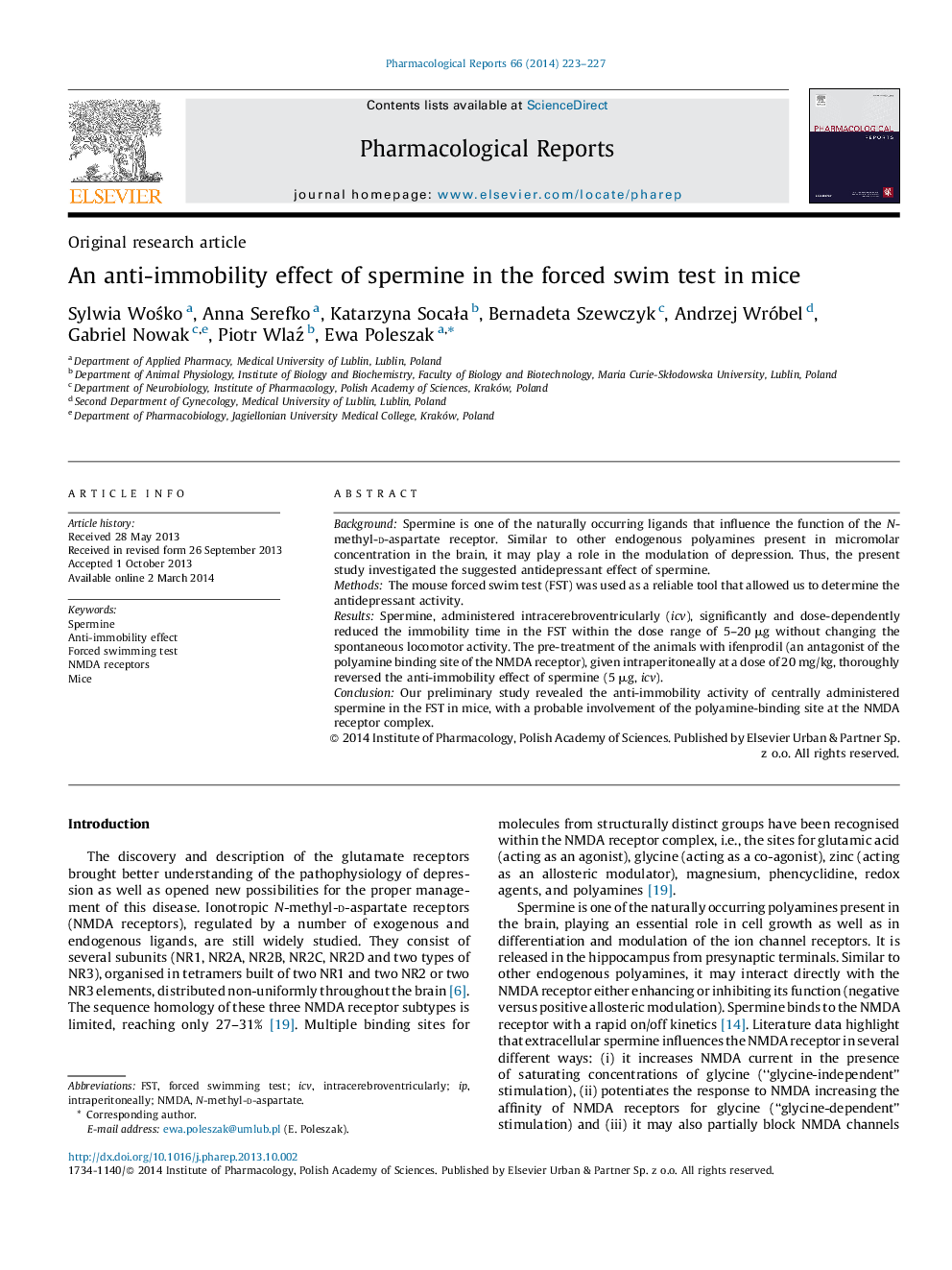| Article ID | Journal | Published Year | Pages | File Type |
|---|---|---|---|---|
| 2011156 | Pharmacological Reports | 2014 | 5 Pages |
BackgroundSpermine is one of the naturally occurring ligands that influence the function of the N-methyl-d-aspartate receptor. Similar to other endogenous polyamines present in micromolar concentration in the brain, it may play a role in the modulation of depression. Thus, the present study investigated the suggested antidepressant effect of spermine.MethodsThe mouse forced swim test (FST) was used as a reliable tool that allowed us to determine the antidepressant activity.ResultsSpermine, administered intracerebroventricularly (icv), significantly and dose-dependently reduced the immobility time in the FST within the dose range of 5–20 μg without changing the spontaneous locomotor activity. The pre-treatment of the animals with ifenprodil (an antagonist of the polyamine binding site of the NMDA receptor), given intraperitoneally at a dose of 20 mg/kg, thoroughly reversed the anti-immobility effect of spermine (5 μg, icv).ConclusionOur preliminary study revealed the anti-immobility activity of centrally administered spermine in the FST in mice, with a probable involvement of the polyamine-binding site at the NMDA receptor complex.
